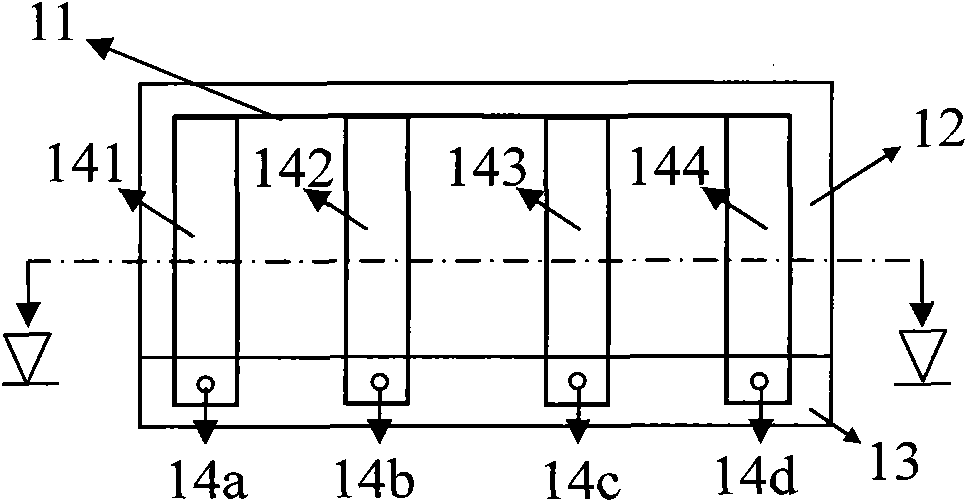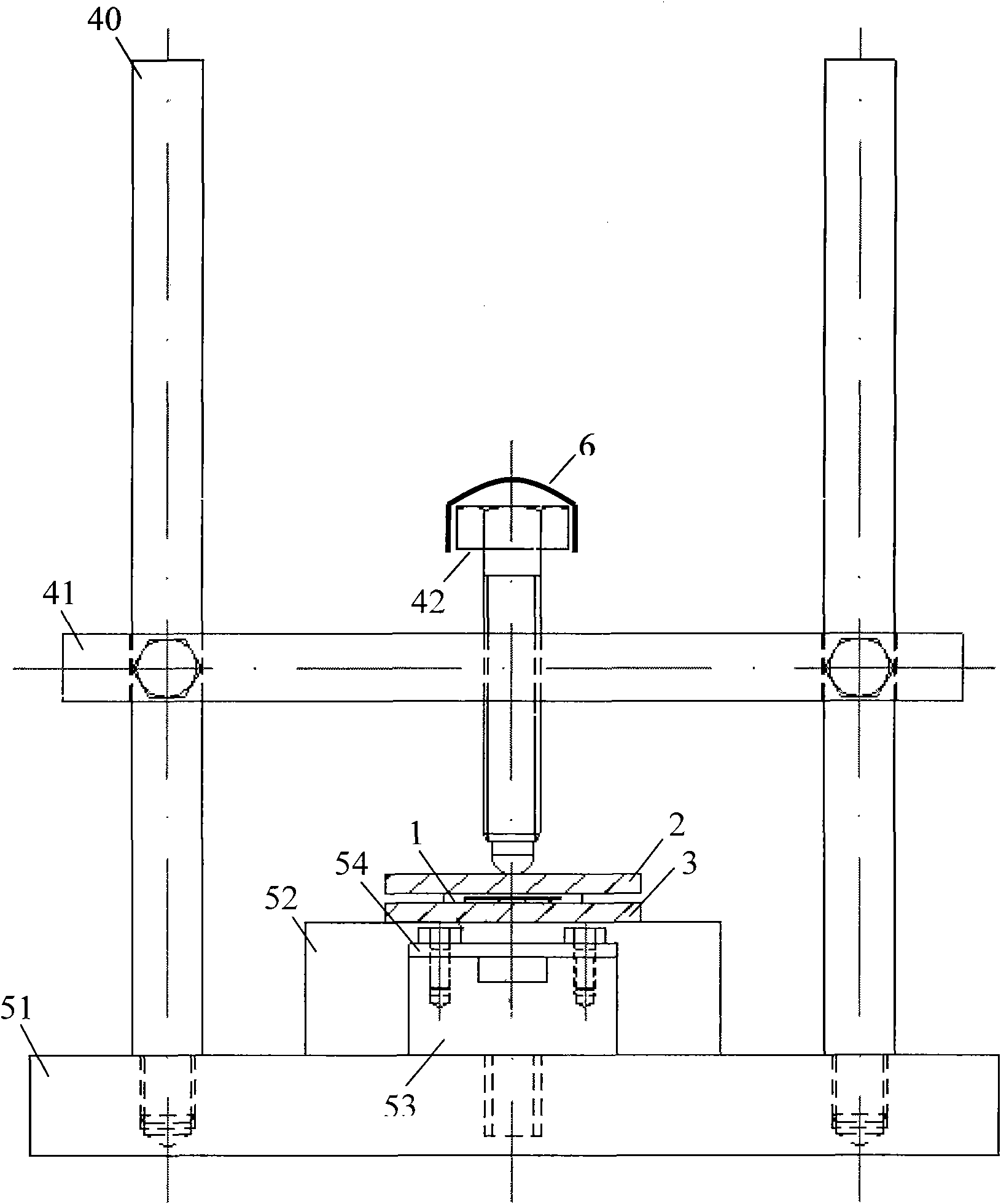Method and device for testing thermal physical property of solid material with independent probe by using harmonic method
A solid material and testing device technology, applied in the direction of material thermal development, material thermal conductivity, etc., can solve difficulties, repeatedly prepare micro-metal strip insulation and other problems, and achieve the effect of ensuring non-destructive testing
- Summary
- Abstract
- Description
- Claims
- Application Information
AI Technical Summary
Problems solved by technology
Method used
Image
Examples
Embodiment Construction
[0033] Various details involved in the technical solution of the present invention will be described in detail below in conjunction with the accompanying drawings. It should be pointed out that the described embodiments are only intended to facilitate the understanding of the present invention, rather than limiting it in any way.
[0034]The invention relates to a method for testing thermal properties of solid materials by harmonic method with an independent probe, which involves replacing the technical scheme of directly depositing the probe on the surface of the sample with a structure in which a miniature independent probe is sandwiched between two identical samples to be tested. Non-destructive testing of the thermal physical parameters of the samples to be tested. The optimum torque value should be calibrated with a standard red copper sample before testing. The steps to implement the method by using the harmonic method solid material thermophysical property testing devi...
PUM
| Property | Measurement | Unit |
|---|---|---|
| Thickness | aaaaa | aaaaa |
| Width | aaaaa | aaaaa |
| Length | aaaaa | aaaaa |
Abstract
Description
Claims
Application Information
 Login to View More
Login to View More - R&D
- Intellectual Property
- Life Sciences
- Materials
- Tech Scout
- Unparalleled Data Quality
- Higher Quality Content
- 60% Fewer Hallucinations
Browse by: Latest US Patents, China's latest patents, Technical Efficacy Thesaurus, Application Domain, Technology Topic, Popular Technical Reports.
© 2025 PatSnap. All rights reserved.Legal|Privacy policy|Modern Slavery Act Transparency Statement|Sitemap|About US| Contact US: help@patsnap.com



